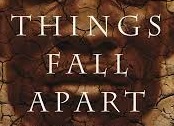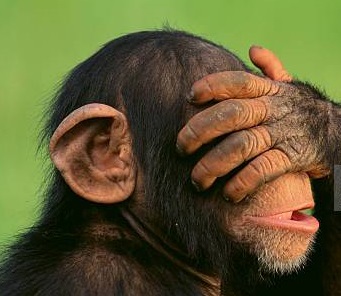Things Fall Apart perceives the world in a balanced way such that although the writer approaches human issues from the viewpoint of a specific culture, yet various issues in the text have universal applicability. Damrosh’s idea about bridging the tensions between distant literary traditions also finds relevance in this regard. Damrosch notes that although writers demarcated by distant literary traditions may not share common literary references and style, they could be read based on the similarities that they share with regard to universals such as theme, characterization, plot, genre and so on (47). To begin with, Things Fall Apart expresses an existential understanding of the world such that man is fated to act according to a set of predetermined scripts of some supernatural force. This existential notion is culturally expressed through the concept of chi in the Igbo cosmology. One’s chi is believed to the responsible for whatever befalls one. Achebe uses Okonkwo to demonstrate this. The tragic events that build up to Okonkwo’s suicide show that Okonkwo, who is ruled by the passion of becoming one of the lords of the land, is bedeviled by contrary incidents which are beyond his control. For instance, Okonkwo neither envisaged that he would be banished from his fatherland nor commit suicide as a protest against the desecration of his homeland by Western intruders. In the text, it is implied that Okonkwo’s chi was responsible for his eventual tragedy as much as it was responsible for his initial fame that spread like wildfire.
In addition, we see that both the Umofians and adherents of the new religion believe in an Almighty Creator and Controller of the universe. However, whereas the Christians, represented by Mr Smith, believe that the natives are fetish and primitive in their belief, Akunna defends the polytheistic stance of the Umuofians. Akunna explains that the gods are mere representative of Chukwu in the same way the District Commissioner represents the queen. It becomes clear that this belief in a universal sovereign being cuts across culture, yet accessing such a being has varying applications from one culture to another. This tension is responsible for the conflict between the Christians and the natives in the text.
Furthermore, Things Fall Apart expresses the universal belief in the necessity of rule adjudication. But whereas the Western administration espouses the court system, Umuofia enforces her laws with a rather religious slant, doing so not only through the elders of the clan but also through the spirits/ancestor of the clan. Hence, egwugwu, and other gods such as Amadioha are responsible for dispensing justice in Umuofia.
What more? Achebe’s novel portrays a universal view of the world as a stage for the contestation of power. The wrestling contest between Okonkwo and Amalinze is a symbolic representation of this notion. Essentially, this occurs in the white man’s use of some technological weapon such as guns to control their newly acquired territory. Colonial imperialism which is a major feature of the text gives credence to this inherent contestation of power among individuals and nations of the world. But for the Umuofians, to a large extent, traditional mystical powers, not Western technology, are their traditional technology used in controlling power and domains.
Also, the idea of asylum seeking, which is a universal practice, is portrayed the in the text. While defaulters on a universal platform may abide by certain set standards for seeking asylum in another country, what obtains in the traditional Umuofia society is to seek asylum in one’s maternal home. Okonkwo, after inadvertently killing a young man, flees to Mbanta, his maternal home. It is in this instance that the novel expresses the cultural importance placed on a mother in the traditional Umuofia society, and in Africa by extension. The novel does this by elaborating on the meaning of the name “Nneka”, which means, the mother is supreme.
In sum, Chinua Achebe’s classic has portrayed what critics call glocalism: an act of treating local subject matters or themes for a global audience or vice versa. In other words, it is a strategy in which writers think globally, but act locally (Damrosch 109). In Things Fall Apart, therefore, Achebe presents his traditional locality as a microcosm of a global exchange. This is also an advantage of world literature.
ALSO READ: the-origin-of-african-dramatic-practice







